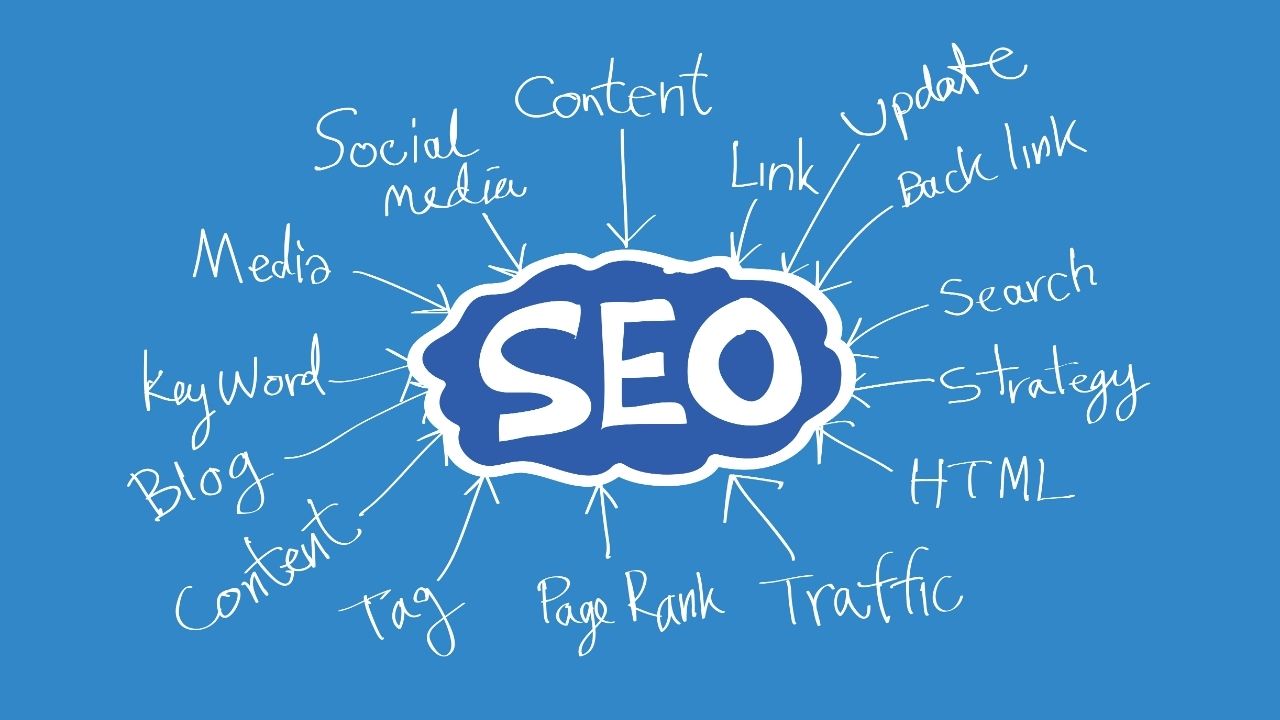Introduction
In the rapidly evolving digital marketplace, the significance of a robust online presence cannot be overstated. Search Engine Optimization (SEO) has become a fundamental component of digital marketing strategies for businesses of all sizes. However, for small businesses, SEO is particularly critical. This article explores the importance of SEO for small businesses, detailing how it can drive traffic, enhance visibility, and ultimately contribute to long-term success.
Understanding SEO
What is SEO?
Search Engine Optimization (SEO) involves optimizing a website and its content to improve its visibility in search engine results pages (SERPs). The primary goal of SEO is to attract organic (non-paid) traffic from search engines like Google, Bing, and Yahoo. SEO encompasses various techniques, including keyword research, content optimization, link building, and technical enhancements, all aimed at increasing a website’s ranking on SERPs.
How SEO Works
Search engines use complex algorithms to determine the relevance and authority of web pages. These algorithms consider numerous factors, such as keyword usage, website structure, mobile-friendliness, and the quality of backlinks. By aligning a website with these criteria, businesses can improve their chances of appearing higher in search results, making it easier for potential customers to find them.
The Critical Role of SEO for Small Businesses
Increased Online Visibility
One of the most significant advantages of SEO is increased online visibility. When a small business appears on the first page of search engine results, it is more likely to be seen by potential customers. Higher visibility translates to more website traffic, which can lead to increased inquiries, sales, and revenue. For small businesses with limited budgets, organic search traffic is a cost-effective way to reach a broad audience.
Building Credibility and Trust
Websites that rank higher in search results are often perceived as more credible and trustworthy. SEO helps establish authority in a specific niche by optimizing content with relevant keywords, securing high-quality backlinks, and ensuring a seamless user experience. For small businesses, building credibility is essential for attracting and retaining customers, especially in competitive markets.
Targeting the Right Audience
SEO allows small businesses to target specific demographics and geographic locations effectively. Through local SEO strategies, businesses can optimize their online presence to attract customers from their immediate vicinity. This is particularly beneficial for brick-and-mortar stores and service-based businesses that rely on local clientele. By targeting the right audience, small businesses can increase the relevance of their traffic and improve conversion rates.
Cost-Effectiveness
Long-Term Investment
Unlike paid advertising, which requires ongoing investment, SEO is a long-term strategy that can yield sustainable results. While it does require an initial investment in terms of time and resources, the benefits of SEO can last for years. Once a website achieves a high ranking, it can maintain its position with regular updates and maintenance, providing a continuous stream of organic traffic without the recurring costs associated with pay-per-click (PPC) advertising.
High ROI
SEO typically offers a higher return on investment (ROI) compared to other marketing strategies. By targeting users who are actively searching for products or services related to their business, small businesses can achieve higher conversion rates. The ability to track and measure SEO performance using analytics tools allows businesses to refine their strategies and maximize their ROI.
Enhancing User Experience
Optimized Website Structure
A crucial aspect of SEO is optimizing the website structure to ensure it is user-friendly and easy to navigate. This includes improving page load speeds, creating a mobile-responsive design, and organizing content logically. A well-structured website not only pleases search engine algorithms but also enhances the user experience, leading to lower bounce rates and higher engagement.
Quality Content
Content is a cornerstone of SEO. By creating high-quality, informative, and engaging content, small businesses can attract and retain visitors. Content that addresses the needs and questions of potential customers can establish a business as an authority in its industry. Regularly updating content also signals to search engines that the website is active and relevant, which can boost rankings.
Staying Competitive
Keeping Up with Competitors
In today’s digital landscape, most businesses are leveraging SEO to some extent. For small businesses, staying competitive means investing in SEO to keep up with rivals. Businesses that neglect SEO risk falling behind their competitors in search rankings, leading to reduced visibility and lost opportunities. By continuously optimizing their online presence, small businesses can maintain a competitive edge.
Adapting to Algorithm Changes
Search engine algorithms are constantly evolving to provide better search results. For small businesses, keeping up with these changes is crucial to maintaining their rankings. SEO requires staying informed about algorithm updates and adjusting strategies accordingly. Businesses that adapt to changes in search algorithms can maintain their visibility and continue to attract organic traffic.
Local SEO: A Game Changer for Small Businesses
Importance of Local Search
Local SEO is a subset of SEO that focuses on optimizing a business’s online presence for local search queries. This is particularly important for small businesses that serve a local customer base. Local SEO strategies include optimizing Google My Business listings, acquiring local backlinks, and creating location-specific content. By appearing in local search results and map listings, small businesses can attract more nearby customers.
Google My Business
Google My Business (GMB) is a powerful tool for local SEO. By claiming and optimizing their GMB listing, small businesses can provide potential customers with essential information, such as business hours, contact details, and customer reviews. A well-optimized GMB profile can significantly enhance a business’s visibility in local search results and on Google Maps.
Measuring SEO Success
Analytics and Metrics
One of the major advantages of SEO is the ability to measure its effectiveness. Tools like Google Analytics, Google Search Console, and various SEO software provide detailed insights into website performance. Businesses can track metrics such as organic traffic, bounce rates, keyword rankings, and conversion rates. This data-driven approach allows small businesses to make informed decisions and continually improve their SEO strategies.
Continuous Improvement
SEO is not a one-time effort but an ongoing process. Continuous improvement is essential for maintaining and enhancing search rankings. Regularly updating content, acquiring new backlinks, and optimizing for new keywords are all part of an effective SEO strategy. By continuously refining their SEO efforts, small businesses can adapt to changing market conditions and achieve sustainable growth.
Overcoming SEO Challenges
Managing Resources
For small business owners, managing SEO efforts alongside other business operations can be challenging. SEO requires time, effort, and expertise. While some businesses may have the resources to handle SEO in-house, others might benefit from partnering with an SEO agency or consultant. Investing in professional SEO services can ensure that the business’s online presence is optimized effectively.
Staying Informed
The world of SEO is dynamic and constantly evolving. Keeping up with the latest trends, algorithm updates, and best practices is crucial for success. Small business owners should invest time in learning about SEO or delegate this responsibility to knowledgeable staff or external experts. Staying informed enables businesses to adapt their strategies and maintain a competitive edge.
Conclusion
In conclusion, SEO is an indispensable tool for small businesses aiming to thrive in the digital age. It offers numerous benefits, from increased online visibility and credibility to cost-effectiveness and enhanced user experience. By leveraging SEO, small businesses can attract targeted traffic, build a strong online presence, and stay competitive in their industry. Investing in SEO is not just an option but a necessity for any small business looking to achieve long-term success in today’s competitive marketplace.

